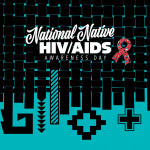On June 29, 2023, the Supreme Court of the United States (SCOTUS) severely limited affirmative action policies in the college admissions process, effectively outlawing the direct consideration of race as a factor for admissions. The verdict was split along ideological lines, with the six conservative justices voting to strike these policies under the grounds that they violate the equal protection clause of the Constitution, and the three liberal justices voting to uphold these policies. This decision not only harms people of color by reducing their ability to attain a higher degree, but it will also adversely affect Black and Latinx people who are impacted by HIV as fewer people of color will be able to enter the fields of medicine, public health, and public policy.
In his writing of the majority opinion, Chief Justice John Roberts argues that students “must be treated based on his or her experiences as an individual—not on the basis of race.” However, this ignores the legacy and impact of the enslavement of Black people for centuries. White supremacist policies such as redlining, segregation and disinvestment in Black and Latinx communities have translated to a lower quality of education and less economic opportunities for youth of color, and which, in turn, has severely limited our ability to attain a higher education.
AIDS Foundation Chicago (AFC), through community focus groups, has found that racism, poorly trained health care providers and language barriers are among some of the top challenges for those living with or vulnerable to HIV in achieving their best health outcomes. The lack of diversity in health care and public health is one direct cause of these challenges. In the realm of public policy, decisions about our communities are being made without diverse people with similar lived experiences at the table. A reduction in the number of Black and Latinx people admitted to colleges directly translates to a reduction in the diversity of professions like medicine, public health and public policy, all of which already face diversity issues. For example, according to the Association of American Medical Colleges (AAMC), in 2018, 56.2% of all active physicians were White, but only 5.8% were Latinx and only 5.0% were Black.
Affirmative action policies were implemented in the 1960s specifically to address the legacy of enslavement and racism, and to level the playing field for people of color. It cannot be reasonably expected that, in the last 58 years, the United States has undone the harms of centuries of racism in this country. Data shows that, in 2019, the college enrollment rate for White individuals was 41%, 37% for Black individuals, and 36% for Latinx individuals. However, for the 2018-2019 academic year, 62.3% of all Bachelors’ degrees were conferred to White individuals, while only 10.3% and 14.9% were conferred to Black and Latinx individuals, respectively.
As an immigrant Latino, I was the first in my family to be admitted to college, where I pursued bachelor’s and master’s degrees in biology as a pre-med, hoping to become an HIV clinician one day. The lack of Black and Latinx people in my classes was a jarring experience, having come from the Chicago public education system, where diversity was the rule, not the exception. For most of my undergrad, I felt isolated and completely out of place, constantly questioning if I truly belonged in college. Were it not for external support systems, I would not have finished my degrees. Disillusioned with the higher education system, I made the painful decision to forgo my dream of becoming a physician, and instead dedicated my career to public health and advocating for change through public policy, with the hope that my work would one day make it easier for other people of diverse backgrounds to thrive in the medical field. My story is not unique. Every day, Black and Latinx people are locked out of a college education, and many others are unable to finish their degrees due to the pressures of a system that was not designed for us to succeed.
We wonder why Black and Latinx people continue to experience disproportionate rates of chronic conditions and adverse health outcomes. We wonder why Black and Latinx people continue to be disproportionately impacted by HIV and homelessness. We cannot address racial inequities in the United States until our systems reflect the diversity of this country, and the decision by SCOTUS severely threatens the progress we have made.
To learn more about the work AFC is doing to advance racial equity in public policy, including our policy statement calling on Illinois to declare racism a public health crisis, visit our website at aidschicago.org. You can also sign up for our Mobile Action Center to get action alerts for opportunities to contact your elected representatives on a variety of issues that impact people living with HIV or experiencing homelessness.
This opinion was written by Omar Martínez González, the senior manager of policy and advocacy at AIDS Foundation Chicago.







Comments
Comments